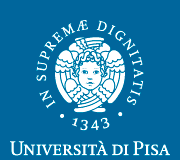Research Lines
- The research activity of VET/05 is based on the study of infectious diseases of domestic and wild animals, including several aspects such as bacteriology, virology, epidemiology, pathogenesis, diagnosis, and prophylaxis
- Studies are focused on several topics generally regarding the development and application of diagnostic tests for detection of pathogens in domestic and wild animals, with a particular attention to zoonotic diseases from a One Health perspective
- Regarding viral infectious diseases, the research activity is focused on the following topics: development and application of new diagnostic tests, evaluation of the presence of viral pathogens in domestic and wild animals with a particular interest in zoonotic emerging viral infectious diseases; the generation and purification of recombinant proteins through baculoviruses as a tool for the development of virological diagnostic tests; monitoring the presence of viruses involved in food poisoning in bivalve molluscs; studies on the presence of viral pathogens in honeybees; evaluation of the antiviral properties of essential oils and products of natural origin are also carried out
- The topics of research relating to infectious diseases of bacterial aetiology focus mainly on zoonotic diseases from a One Health perspective. In particular, studies concern the investigation of leptospirosis in domestic and wild animals; the study of pathogenicity and antibiotic-resistance factors of salmonellae isolated from animals and environment; the study of pathogenicity and antibiotic-resistance factors of bacteria isolated from biological samples collected from companion animals; the spread of paratuberculosis in domestic and wild ruminants; arthropod-borne infections in companion and wild animals; the spread of zoonotic bacteria in domestic and wild birds and their antibiotic- resistance; the study of the antibacterial activity of natural products such as essential oils and bioactive molecules of different origins and bacteriophages against multi-resistant animal pathogens; the study of the probiotic potential of commensal microorganisms in the animal intestine
- These studies are carried out using both molecular biology and Next Generation Sequencing (NGS) techniques
